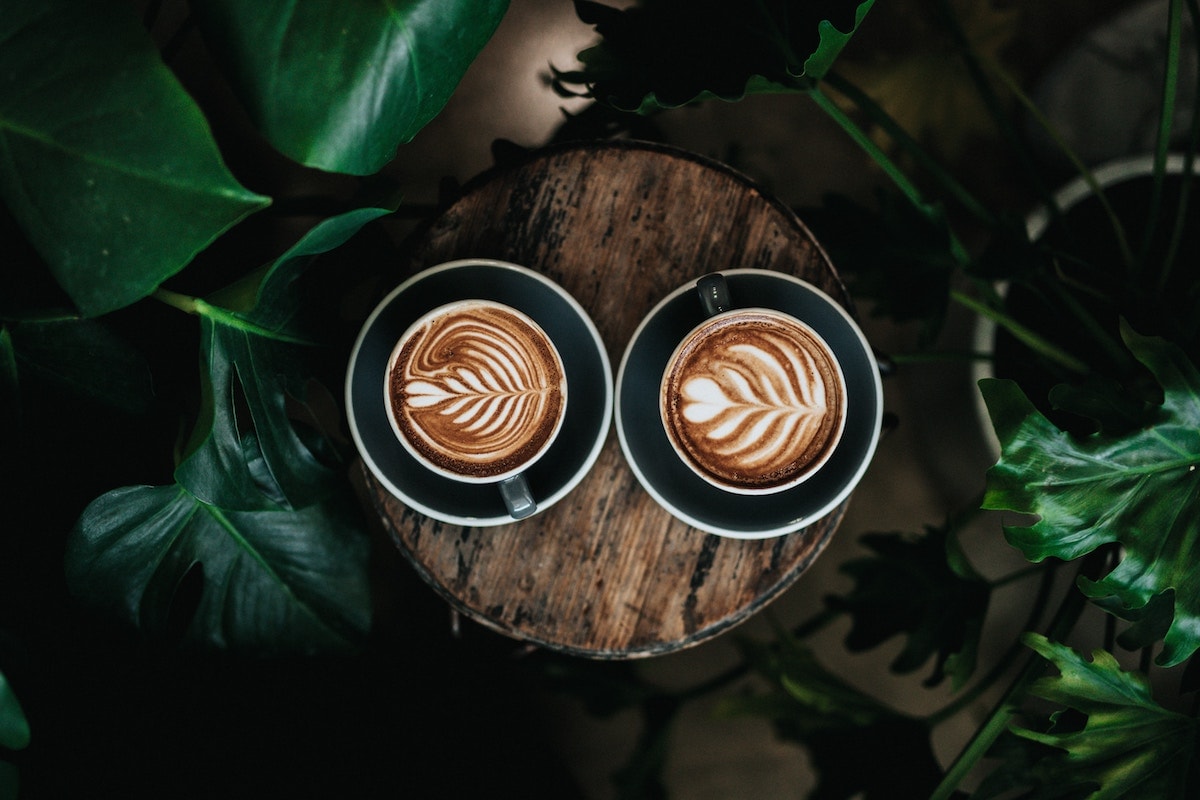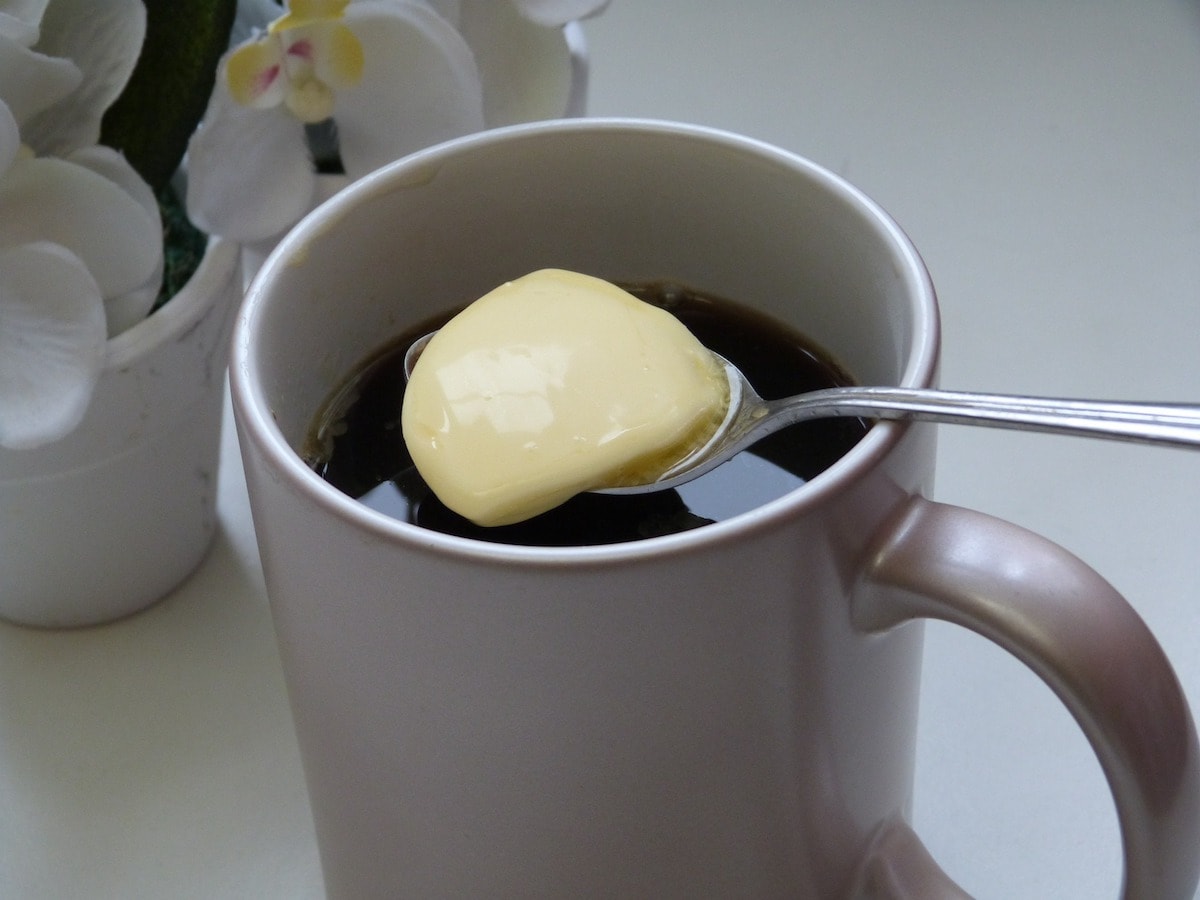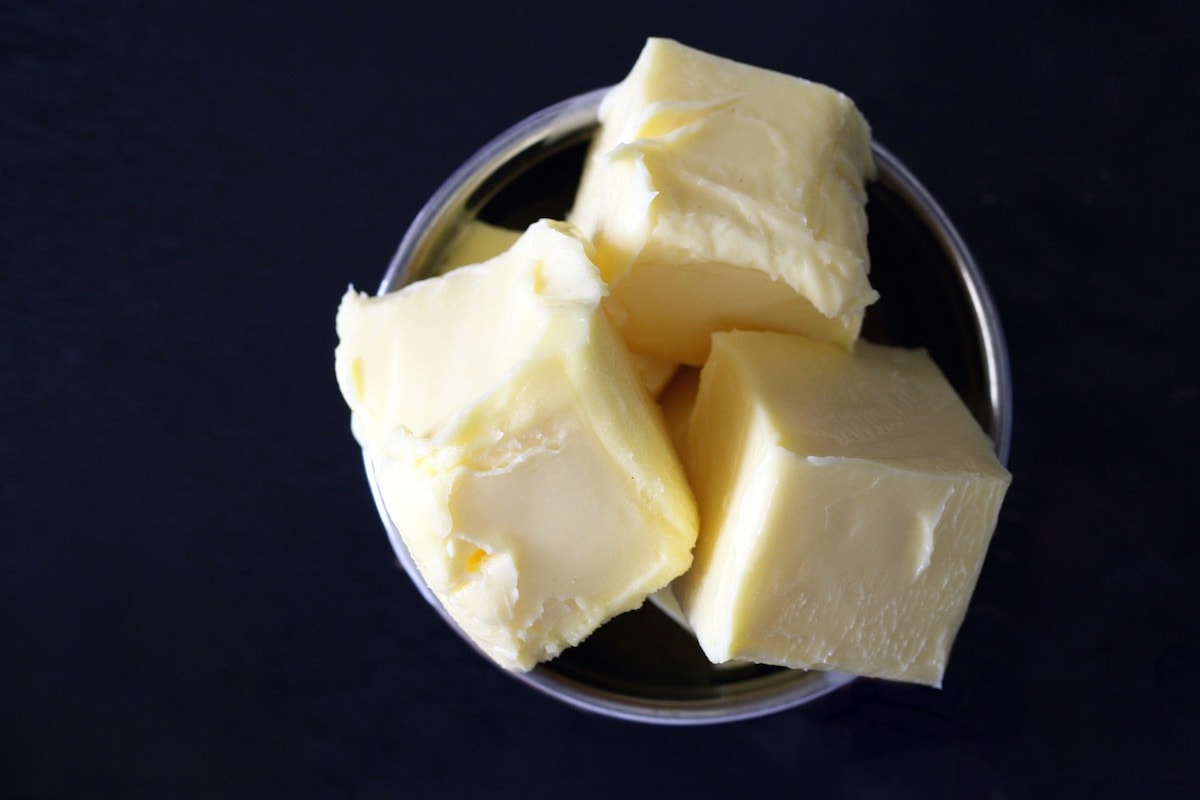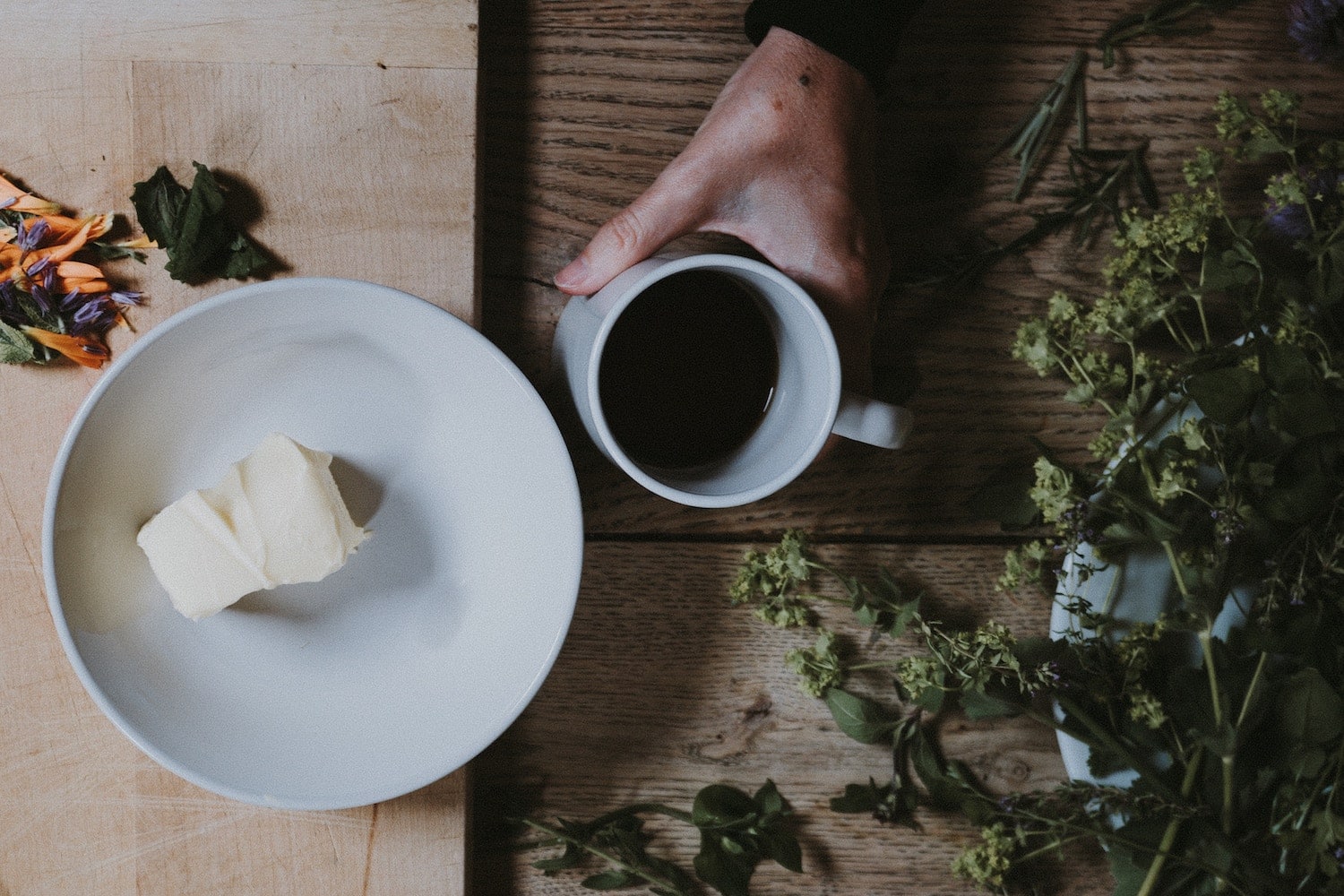It’s not exactly an age-old question, but one that continues to come up. The keto diet is having its moment in the spotlight, but unlike some of the fads that have come before it, some of the keto tips and tricks have filtered into mainstream dining establishments—and the one we keep seeing everywhere is high-fat coffees. So what’s it all about? What are the health perks of a high-fat coffee, if any? Do keto diet hacks work even if you’re not following the diet? We’re taking a look at the high-fat coffee trend with the help of Hong Kong nutritionist Michelle Lau to separate out fact and fiction.

What is the Keto Diet?
Before we dive into the whole butter-in-coffee debate, what actually is the keto diet? The keto diet is a high-fat, low-carbohydrate diet designed to help the body burn fat more efficiently. Instead of using sugars (glucose) from carbohydrates, the body instead converts fats into ketones, which are used as an alternative fuel source by the body. With your body not relying on sugar-rushes from high-carb foods, the body runs more steadily on a constant fuel source of fat, which is why many on the diet report having higher energy levels. The body burns through fat, while the moderate protein intake in the diet maintains muscle. It is popular as a weight loss method and is an effective diet in burning fat.
See also: 7 Healthy Holiday Eating Hacks From A Registered Dietician
However, the keto diet has been criticised for the extremely low amount of carbs recommended in the diet—around 5% of daily food intake, or 50 grams per day which is equivalent to a slice of bread. “For clients who insist on following a strict ketogenic diet for weight loss, nutrient insufficiencies can result. The ketogenic diet is a restrictive diet that limits fruits, vegetables, and fibre-rich foods, all of which provide health benefits,” says nutritionist Michelle Lau. Additionally, high-fat intake has been linked to high cholesterol and heart disease. There are no long-term studies on the effects of the keto diet long-term, and there have been mixed responses among the medical community as to the benefits and risks of high-fat diets. It’s important to always consult with a doctor before considering a diet change, as certain medications and illnesses can further complicate this.

Why would you put butter in your coffee though?
If you’re on the keto diet, it’s important to kick-start your body in the morning to burn the correct fuel source—goodbye bagels and hello butter. But why in coffee? “Adding high-fat ingredients in coffee is based on the principle of a ketogenic diet which supposedly helps the body enter ketosis faster and burns fat subsequently,” says Michelle. “The fat might help people feel full and satiated longer, which might help prevent overeating during the day. Coupled with the caffeine in coffee, some people might experience greater alertness, satiety, energy, mental clarity.”
See also: How To (Actually) Achieve Your New Year’s Resolutions in 2019
Those avoiding lactose or animal products can add products like ghee, medium chain triglycerides (MCT) oil, or coconut oil instead. This high-fat coffee is known as ‘bulletproof’ coffee and was originally popularised back in 2014 as part of the Bulletproof Diet developed by Dave Asprey. It’s energising and satiating effects, plus high-fat content means it has been adapted and adopted by the keto community, and it’s now available in many mainstream venues. In Hong Kong, MANA! has been serving ‘energy boosting’ vegan coffee with added cacao butter and coconut oil for years, while Elephant Grounds and Classifieds now feature their own version of the bulletproof coffee. There’s no denying that both are delicious and rich—but do they do what they’re supposed to?

Does it work?
That depends on your goals. If you’re on the keto diet to lose weight, Michelle notes that overconsumption of this type of high-fat coffee (more than one cup per day) can actually lead to weight gain rather than loss, as well as gastrointestinal distress. “It should be consumed as a meal/snack replacement but not alongside breakfast.” However, Michelle advises against the keto diet and high-fat coffee fads as a means for weight loss. “Until long-term effects of a ketogenic diet have been studied, I would not recommend ketosis.”
“The goal of going on a ketogenic diet for weight loss is to produce ketones from body’s internal fat source (body fat) but not to just supply ketones from an exogenous source (ie. butter in the coffee),” says Michelle. “While some people will hit ketosis from both their body and dietary fats, consuming too much fat might limit the amount of fat the body burns and increase body fat stores, which is counter-intuitive.”
See also: 5 Weight Loss Retreats in Asia For Fast Results
Those looking to lose weight will still have to monitor their calorie intake, even on the keto diet, to ensure they are in a calorie deficit. One tablespoon of butter is around 100 calories, and most ‘bulletproof’ coffee recipes call for around two tablespoons of butter or ghee, and one to two spoons of MCT or coconut oil. That takes your black morning coffee from around five calories to upward of 300 calories (or, more than the average bowl of cereal with skimmed milk).

So should I put butter in my coffee?
Any coffee aficionado already knows the answer to this—absolutely not. From a weight loss or dietary perspective, it’s a little more complicated.
Everyone reacts differently to different diets, so while a high-fat diet may suit some people, it won’t suit others. Extreme diets of any kind risk not being nutritionally balanced, and generally, have a poor adherence rate because they are too difficult to stick to long-term.
Find diet retreats on Compare Retreats today.
However, whether you’re on the keto diet or not, there can still be perks to some of the keto hacks. “The satiating effects still exists even when you not on a keto diet as fats are slowest to digest,” says Michelle. “They are a more concentrated fuel than glucose (carbs), and your body uses them after its glucose levels begin to subside.” Fats are important to a balanced diet, and kick-starting your metabolism burning fats rather than glucose could help avoid energy crashes, and target your morning and lunchtime workouts to burning body fat rather than sugar—from an energy perspective, a little more fat is a good thing, as long as your watching fats in other areas of your life.
At the end of the day, everything in moderation is the boring but true answer. So maybe take these keto hacks with a pinch of salt—or butter—and remember that balance is key.
Always consult with your doctor and a dietician before making drastic diet changes.
Michelle is a Registered Dietitian Nutritionist (MSc Human Nutrition, Canada) and founder of NUTRILICIOUS, a nutrition consultancy and communications company that specialises in sports nutrition, paediatrics nutrition, maternal nutrition, and community nutrition. As an avid runner and obsessive home baker, she appreciates and prioritises balance in all areas of life. Follow Michelle on Facebook and Instagram for your daily dose of diet and nutrition advice.



